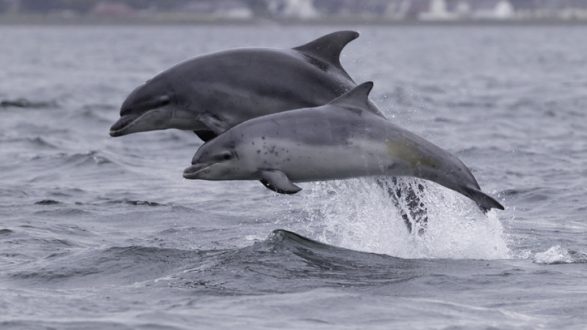
 Wild & Free/iStock(NEW YORK) — More than 200 bottlenose dolphins have become stranded on beaches along the Gulf of Mexico from Louisiana to Florida since Feb. 1, according to the National Oceanic and Atmospheric Administration.
Wild & Free/iStock(NEW YORK) — More than 200 bottlenose dolphins have become stranded on beaches along the Gulf of Mexico from Louisiana to Florida since Feb. 1, according to the National Oceanic and Atmospheric Administration.
The elevated number of strandings represents three times the average in the same time period, NOAA announced. They have mostly been occurring in the northern portions of the Gulf Coast, including Louisiana, Mississippi, Alabama and the Florida panhandle.
NOAA declared the deaths an unusual mortality event. A UME was also declared for dozens of gray whales that have been washing up dead on the west coast of the U.S.
Some of the stranded dolphins have had visible skin lesions that are consistent with freshwater exposure, NOAA announced.
It is too early to determine any potential causes for the increase in deaths, according to NOAA. Since many of the dolphins are decomposed by the time researchers get to them, they are limited in their ability to collect samples to determine the cause of illness or death.
In addition, many of the dolphins have become beached in remote areas.
Scientists are asking the public to assist investigators by immediately reporting any sightings of live dolphins in distress or stranded dolphins, which are floating or on the beach, by calling the Southeast Marine Mammal Stranding Network at 877-WHALE HELP (877-942-5343). Citizens can also contact the U.S. Coast Guard or use the Dolphin and Whale 911 app on their smartphones.
NOAA warned citizens to not push the animal back into sea, as they may be sick or injured, but encouraged them to stay with the animal until rescuers arrive, using caution and keeping a safe distance away.
If the animal is alive, citizens can keep its skin moist by splashing water all over its body. Wet towels will also help them remain moist and protect them from sunburn.
In addition, do not collect any parts of the animal, as they fall under the Marine Mammal Protection Act.
Copyright © 2019, ABC Radio. All rights reserved.










